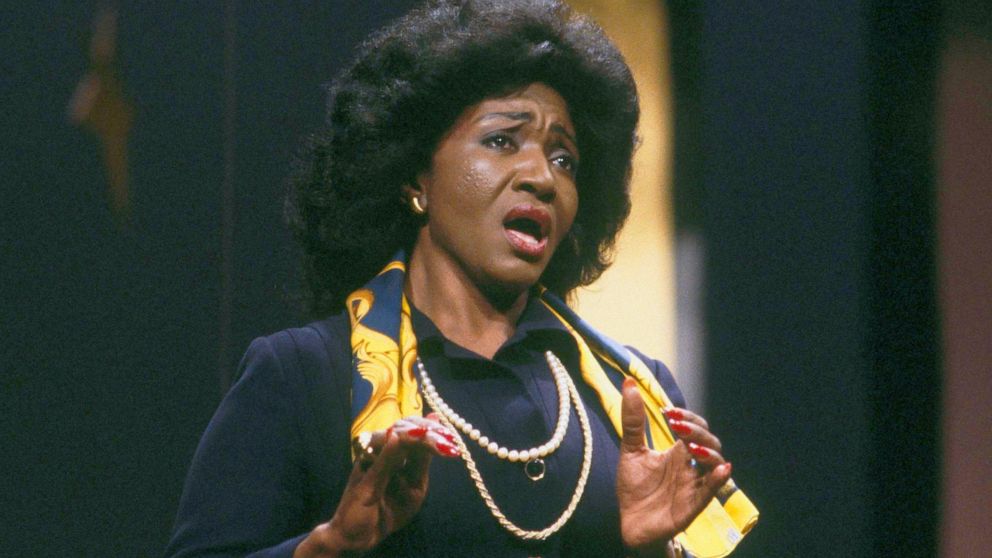Global Courant 2023-05-09 01:47:43
NEW YORK — Grace Bumbry, a pioneering mezzo-soprano who became the first black singer to perform at Germany’s Bayreuth Festival during a career spanning more than three decades on the world’s top stages, has passed away. She turned 86.
Bumbry died Sunday at Evangelisches Krankenhaus, a hospital in Vienna, according to her publicist, David Lee Brewer.
She suffered a stroke on October 20 while flying from Vienna to New York to attend her induction into Opera America’s Opera Hall of Fame. She was struck by the plane 15 minutes after landing, was treated at NYC Health + Hospitals/Queens and returned to Vienna on December 8. Since then, she had been in and out of facilities, Brewer said Monday.
Bumbry was born on January 4, 1937 in St. Louis. Her father, Benjamin, was a railroad porter and her mother, the former Melzia Walker, a school teacher.
She sang in the choir at Ville’s Sumner High School and won a talent contest sponsored by radio station KMOX, including a scholarship to the St. Louis Institute of Music, but was denied entry because she was black. She sang on CBS’s ‘Arthur Godfrey’s Talent Scouts’ and then attended Boston University College of Fine Arts. and Northwestern, where she met soprano Lotte Lehmann, who became her teacher at the Music Academy of the West in Santa Barbara, California, and a mentor.
Bumbry, best known as a mezzo but who also performed some soprano roles. was inspired when her mother took her to a recital by Marian Anderson, the American contralto who became the first black singer at New York’s Metropolitan Opera in 1955. Bumbry was part of a generation of acclaimed black opera singers that included Leontyne Price, Shirley Verrett, George Shirley, Reri Grist, and Martina Arroyo.
Bumbry was one of the winners of the Met National Council auditions in 1958. She had a recital debut in Paris that same year and made her debut at the Paris Opéra in 1960 as Amneris in ‘Aida’.
The following year she was cast by Wieland Wagner, a grandson of the composer, to sing Venus in a new production of “Tannhäuser” at the Richard Wagner Festival in Bayreuth. Bumbry’s casting in a staging starring Wolfang Windgassen, Victoria de los Angeles and Dietrich Fischer-Dieskau resulted in 200 letters of protest to the festival.
“I remember being discriminated against in the United States, so why should it be any different in Germany?” Bumbry told St. Louis Magazine in 2021. “I knew I had to go out there and show them what I’m all about. When we were in high school, our teachers – and of course my parents – taught us that you are no different than anyone else. You are not better than anyone and you are not less than anyone. You always have to do your best.”
Reviews of her Bayreuth debut on 23 July 1961 were mostly positive.
“A voice of very large size, if a little colorless. It is a voice that is not yet ‘fixed,’ as the teachers say,” wrote Harold C. Schonberg in The New York Times. “She’s clearly a singer with a great career ahead of her.”
As a result of the attention, Bumbry was invited by First Lady Jacqueline Kennedy to sing at a White House state dinner in February. Debuts followed at Carnegie Hall in November 1962, the Royal Opera in London in 1963 and the Teatro alla Scala in Milan in 1964.
She appeared at the Met on October 7, 1965, as Princess Eboli in Verdi’s “Don Carlo,” the first of 216 performances with the company.
“Her self-assurance, self-possession and character projection are the kind to make a substantial career,” Irving Kolodin wrote in the Saturday Review.
Bumbry’s last full-length opera at the Met was at Amneris in Verdi’s “Aida” on November 3, 1986, although she returned ten years later for the James Levine 25th Anniversary Gala to sing “Mon cœur s’ouvre à ta voix”. my heart)” from Saint-Saëns’ “Samson et Dalila.”
With general manager Peter Gelb said, “opera will forever be indebted to her for the pioneering role she played as one of the first great African-American stars.”
“Grace Bumbry was the first opera star I ever heard in person in 1967 when she sang the part of Carmen at the Met and I was a 13-year-old sitting in Rudolf Bing’s box with my parents,” said Gelb. and watching her give a tour-de-force performance made a deep impression on my teenage soul and was an early influence in my decision to pursue a career in the arts, just as she influenced generations of younger singers of all ethnicities to her formidable footsteps to follow.”
In 1989 she sang in the first fully staged performance of a work at the Paris Bastille Opéra in Berlioz’s “Les Troyens (The Trojans)”. In 2009, she was celebrated in the Kennedy Center Honors.
Bumbry’s 1963 marriage to Polish tenor Erwin Jaeckel ended in divorce in 1972. Bumbry was predeceased by brothers Charles and Benjamin.
Brewer said memorials are being planned for Vienna and New York.








